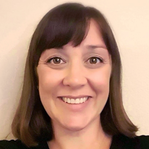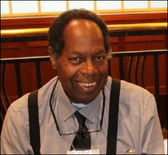Winter Shelter Resources
Winter is coming.
Even in the Bay Area’s mild climate, some people sleeping outside or in vehicles or abandoned buildings will die when their body temperature drops too much.
The community responds with warming stations, often operated by nonprofits and the faith community. Alameda County’s Housing and Community Development Department provides annual funding.
For your reference and to share: HCH's updated list of winter shelter resources.
Even in the Bay Area’s mild climate, some people sleeping outside or in vehicles or abandoned buildings will die when their body temperature drops too much.
The community responds with warming stations, often operated by nonprofits and the faith community. Alameda County’s Housing and Community Development Department provides annual funding.
For your reference and to share: HCH's updated list of winter shelter resources.
Annual Homeless Memorial
On December 8, 2016, St. Mary’s Center in Oakland will hold its Annual Homeless Memorial to honor the lives of people who died on the streets over the preceding year. Click here for more information.
Meet Lucy Kasdin, Manager of Direct Services
Lucy Kasdin joined Health Care for the Homeless in November 2016 as HCH's Manager of Direct Services. Lucy was previously Director of Programs at Bay Area Community Services (BACS), a partner organization that provides mental health, homelessness, housing, and other community services. Lucy supervises HCH’s direct services staff.
An Oakland native, Lucy earned her undergraduate degree in Psychology from Mills College. She started her career doing crisis and outreach-based work for BACS and later earned a Masters of Social Work from Columbia University’s School of Social Welfare. Lucy is a new mother of a four-month-old baby boy.
Lucy has deep experience in program design and implementation, including supporting the program development and launch of the Housing Fast Support Network, a 137-bed interim housing program which is the largest facility of its kind in the East Bay.
Lucy believes that quality care starts with an effort to understand the client's perspective. “Lots of times people ask what’s wrong with people that they’re not coming in. But I want to flip that on its head and challenge ourselves to ask what we need to do differently to engage people successfully.”
“Many people have been traumatized by negative experiences with service providers. We need to ask how we can give people a really different experience.” Lucy says that this starts with an approach that honors people. “We need to treat people with dignity and look for people’s strengths rather than focusing on deficits.”
Lucy tells a story about a client, a woman in her 60s, who was engaged successfully in this way.
“She had this elaborate shopping cart covered with flowers – it was a piece of art,” she says. “She had been connected to services in the past but that wasn't working for her, since many providers won’t meet clients in the field -- they require people to come in for services. I started hanging out with her on the street, buying her coffee, talking to her about things that mattered to her, like her children and her flowers, and showing up when I said I would show up."
"Over time, she grew to trust me and was able to start thinking about what it might be like to come inside. I was able to reconnect her with family members and get her housing. Today, she is connected to services and is living indoors, and her medical conditions are getting the attention they need.”
“It really takes giving people a different kind of experience than they’ve had before with providers -- finding things to talk about and getting to that place where they trust you."
An Oakland native, Lucy earned her undergraduate degree in Psychology from Mills College. She started her career doing crisis and outreach-based work for BACS and later earned a Masters of Social Work from Columbia University’s School of Social Welfare. Lucy is a new mother of a four-month-old baby boy.
Lucy has deep experience in program design and implementation, including supporting the program development and launch of the Housing Fast Support Network, a 137-bed interim housing program which is the largest facility of its kind in the East Bay.
Lucy believes that quality care starts with an effort to understand the client's perspective. “Lots of times people ask what’s wrong with people that they’re not coming in. But I want to flip that on its head and challenge ourselves to ask what we need to do differently to engage people successfully.”
“Many people have been traumatized by negative experiences with service providers. We need to ask how we can give people a really different experience.” Lucy says that this starts with an approach that honors people. “We need to treat people with dignity and look for people’s strengths rather than focusing on deficits.”
Lucy tells a story about a client, a woman in her 60s, who was engaged successfully in this way.
“She had this elaborate shopping cart covered with flowers – it was a piece of art,” she says. “She had been connected to services in the past but that wasn't working for her, since many providers won’t meet clients in the field -- they require people to come in for services. I started hanging out with her on the street, buying her coffee, talking to her about things that mattered to her, like her children and her flowers, and showing up when I said I would show up."
"Over time, she grew to trust me and was able to start thinking about what it might be like to come inside. I was able to reconnect her with family members and get her housing. Today, she is connected to services and is living indoors, and her medical conditions are getting the attention they need.”
“It really takes giving people a different kind of experience than they’ve had before with providers -- finding things to talk about and getting to that place where they trust you."
Willie J. Mackey: In Memorium
By David Modersbach
Willie J. Mackey, a friend and hero of many at the Alameda County HCH Program, died in his sleep on October 30, 2016 in his apartment at the Opportunity Center in Palo Alto, where he had lived since 2009 after years of homelessness.
Willie was involved in many projects, including the National Health Care for the Homeless Council Consumer Advisory Board, where he provided the Alameda County HCH program’s Consumer/Community Advisory Board with much support and inspiration. He also led the Santa Clara Homeless Healthcare Advisory Board. You can learn more about Willie's many activities on his Linked In page.
Challenged by poor health, which caused and in turn compounded his years of homelessness from 2006 to 2010, Willie never backed down from his commitment to fight for health and housing, especially for respite care for people experiencing homelessness. Willie believed in changing policy by coming to the table and speaking from experience, wisdom, love, and quiet rage. Willie was a listener and was self-reflective, and while he appeared humble and shy, he was also powerful and articulate. We can all take inspiration by some things that he left behind, including this presentation and this StoryCorps recorded interview.
We are shocked and saddened by Willie's untimely passing. He was still blazing forward, attending the National Health Care for the Homeless Council Respite Care committee meeting in Nashville the week before he died. Willie will be missed by hundreds of persons -- housed and unhoused -- who benefited from his presence and his work on behalf of others.
Willie was involved in many projects, including the National Health Care for the Homeless Council Consumer Advisory Board, where he provided the Alameda County HCH program’s Consumer/Community Advisory Board with much support and inspiration. He also led the Santa Clara Homeless Healthcare Advisory Board. You can learn more about Willie's many activities on his Linked In page.
Challenged by poor health, which caused and in turn compounded his years of homelessness from 2006 to 2010, Willie never backed down from his commitment to fight for health and housing, especially for respite care for people experiencing homelessness. Willie believed in changing policy by coming to the table and speaking from experience, wisdom, love, and quiet rage. Willie was a listener and was self-reflective, and while he appeared humble and shy, he was also powerful and articulate. We can all take inspiration by some things that he left behind, including this presentation and this StoryCorps recorded interview.
We are shocked and saddened by Willie's untimely passing. He was still blazing forward, attending the National Health Care for the Homeless Council Respite Care committee meeting in Nashville the week before he died. Willie will be missed by hundreds of persons -- housed and unhoused -- who benefited from his presence and his work on behalf of others.
Wondering how the election may affect people experiencing homelessness and HCH programs?
Read this FAQ from the National Health Care for the Homeless Council and this piece in the East Bay Express by Alameda County Supervisor Wilma Chan.
Read this FAQ from the National Health Care for the Homeless Council and this piece in the East Bay Express by Alameda County Supervisor Wilma Chan.




